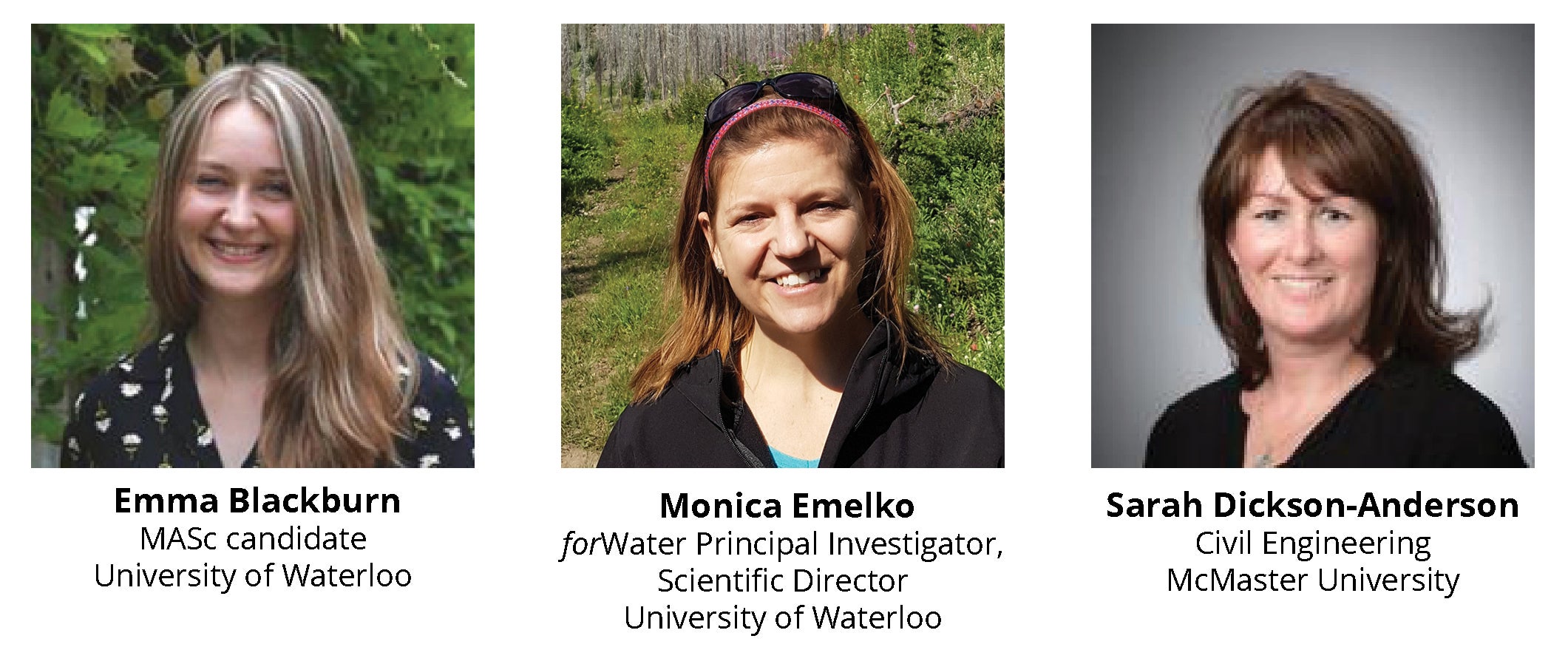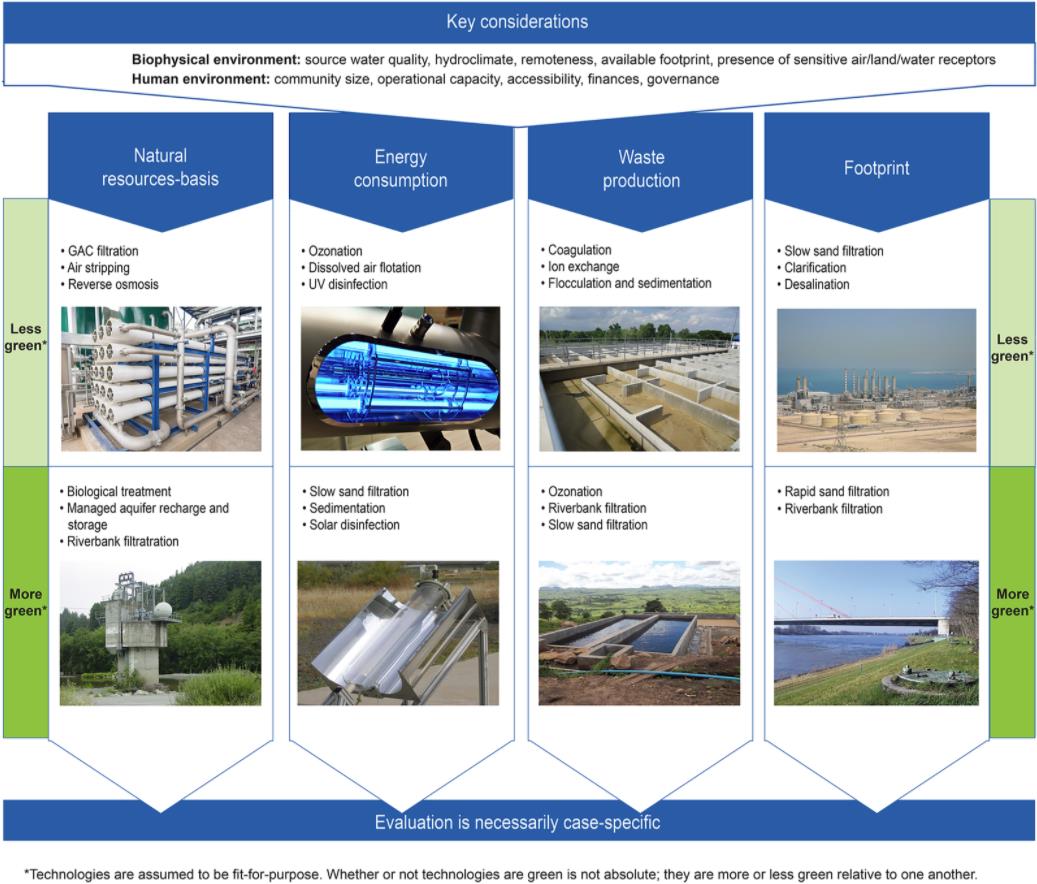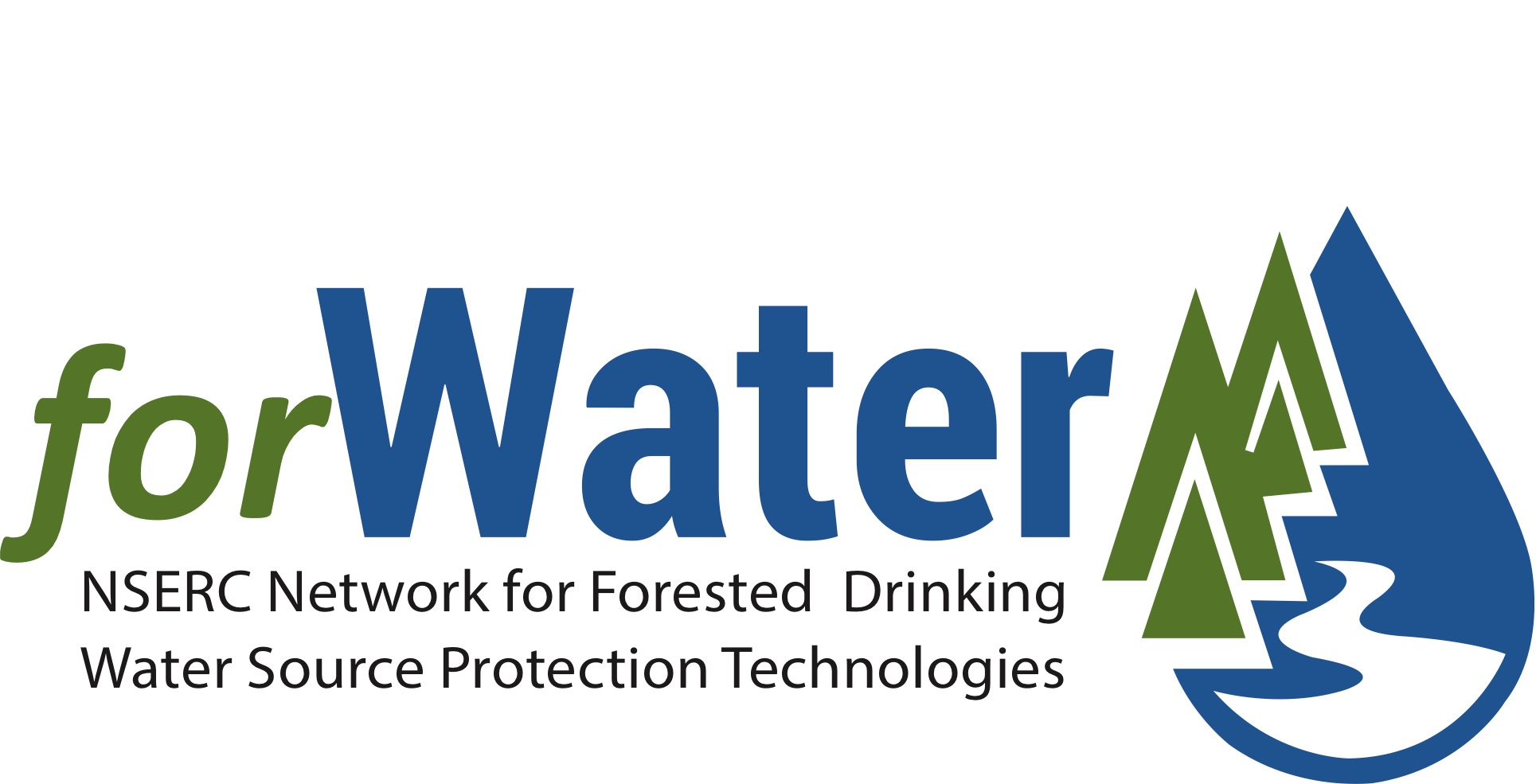Colleagues from the forWater Network have recently published insights from four years of field research. They have released a series of research snapshots highlighting their findings in green technology, cyanobacterial community composition, and managing algal blooms in reservoirs.
The first in the seriespresented by MASc candidate Emma Blackburn, Water Institute member Monica Emelko (University of Waterloo) and Sarah Dickson-Anderson (McMaster University) features a Green technology framework to better assess techno-ecological solutions for water treatment.

Advancing on the promises of techno-ecological nature-based solutions: A framework for green technology in water supply & treatment
Emma A.J. Blackburn, Monica B. Emelko, Sarah Dickson-Anderson, Micheal Stone, 2021. Advancing on the promises of techno-ecological nature-based solutions: A framework for green technology in water supply and treatment. BlueGreen Systems, 3(1): 81–94. doi: https://doi.org/10.2166/bgs.2021.008
Water managers are increasingly asked to integrate “green” approaches or nature-based solutions (NBS) into water supply and treatment practices because they are widely believed to offer environmentally conscientious, energy-efficient, and economically viable solutions. For example, NBS for climate change mitigation include forest management-based source water protection strategies. Despite the widespread use of the term “green”, however, there is no consistently applied definition for “green technology”. This research developed a framework to differentiate technology “greenness” by examining key attributes: 1. natural resource-basis 2. energy consumption 3. waste production 4. footprint. The key to using the framework effectively is to acknowledge that the attributes are closely linked and must be considered relative to the environment in which they are applied. The other factors to consider is the technologies to which they are being compared. The use of the framework can facilitate decision-making that addresses diverse stakeholder priorities— including the influence of sociocultural factors (e.g., cultural uses of water, cultural links to land) on green technology preferences of individuals, groups, or communities.

Figure 1: Framework for the evaluation of green attributes of water supply, treatment, and distribution technologies. (Photo credits bottom row from left to right: Humboldt Bay Municipal Water District; Reprinted from Nalwanga et al. (2014), with permission from Elsevier; Mount Carmel Ltd; DVGW, Water Technology Center, Karlsruhe).
Visit the forWater Network to continue reading or download the full research snapshot containing a framework example in a remote community and key messages.
Contact Information
For more information on this research please contact:
Monica B. Emelko - mbemelko@uwaterloo.ca;
Emma Blackburn - eajblack@uwaterloo.ca
